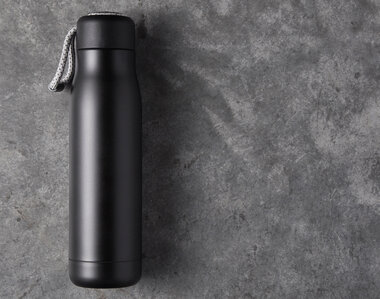31 January 2024
Many people drink alcohol during the holidays to relax, yet December is often described as the most stressful time of the year.
Craig Sherrock works as a senior dual diagnosis practitioner at South London and Maudsley NHS Foundation Trust. In his role he helps develop the skills of the workforce, so his colleagues can support people with co-occurring substance use and mental health issues. Together with fellow practitioners, working in the dual diagnosis service, he took part in Dry January.
We spoke to him about why he wanted to take part and why the trend may continue:
What do you give up for Dry January?
Aside from giving up alcohol, Dry January can also be about giving up the feelings associated with it. The term 'hang-xiety' is frequently referenced on social media and while it's not a medical term we do have evidence which shows that the over consumption of alcohol has a rebound effect the next day, due to the increase in brain activity which was blocked during alcohol intoxication. Giving up alcohol can mean giving up increased feelings of stress and anxiety.
Why is January a good time to take a break from alcohol?
Many people who drink alcohol tend to drink more during the holidays and this can create stress and anxiety. Abstinence at the start of the year is a good idea because it gives the body a chance to bring stress levels down and reduce feelings of anxiety.
The holiday season can be particularly difficult, especially for people in recovery who are trying to avoid drinking, so we try to encourage lots of people to take part in Dry January. It's great that it's becoming more popular because that means people are more supported to say no to drinking. It also creates more opportunities for people to spend time together in settings that don't revolve around alcohol.
Should we stop at Dry January?
I was recently speaking with someone from the Harbour Project, a recovery-based project, and they said, "why can't we have dry January every month, why do we just have to have one month dedicated to abstinence?".
People see lots of great benefits in dry January:
- Many see significant improvements in sleep.
- People experience positive changes in energy levels.
- It helps people save money.
- It makes it easier to improve physical fitness.
- People understand their personal relationship with alcohol better.
Lots of New Year’s resolutions relate to having more energy, saving money, feeling healthier, and improving relationships. Giving up alcohol is one thing people can do to make significant strides in all those areas at once. For anyone looking to experience those kinds of benefits, that would certainly be motivation to keep Dry January going. It doesn't have to end on 31 January, if there is a month when you want a fitness boost, to save some money, or get energised, you can challenge yourself to make it a dry month.
I have recently been working on a South London and Maudsley NHS FT Trust manual called Rethink Your Drink. The manual started out as a tool for patients, but it also became something which could help the families of patients and staff working at the trust too.





